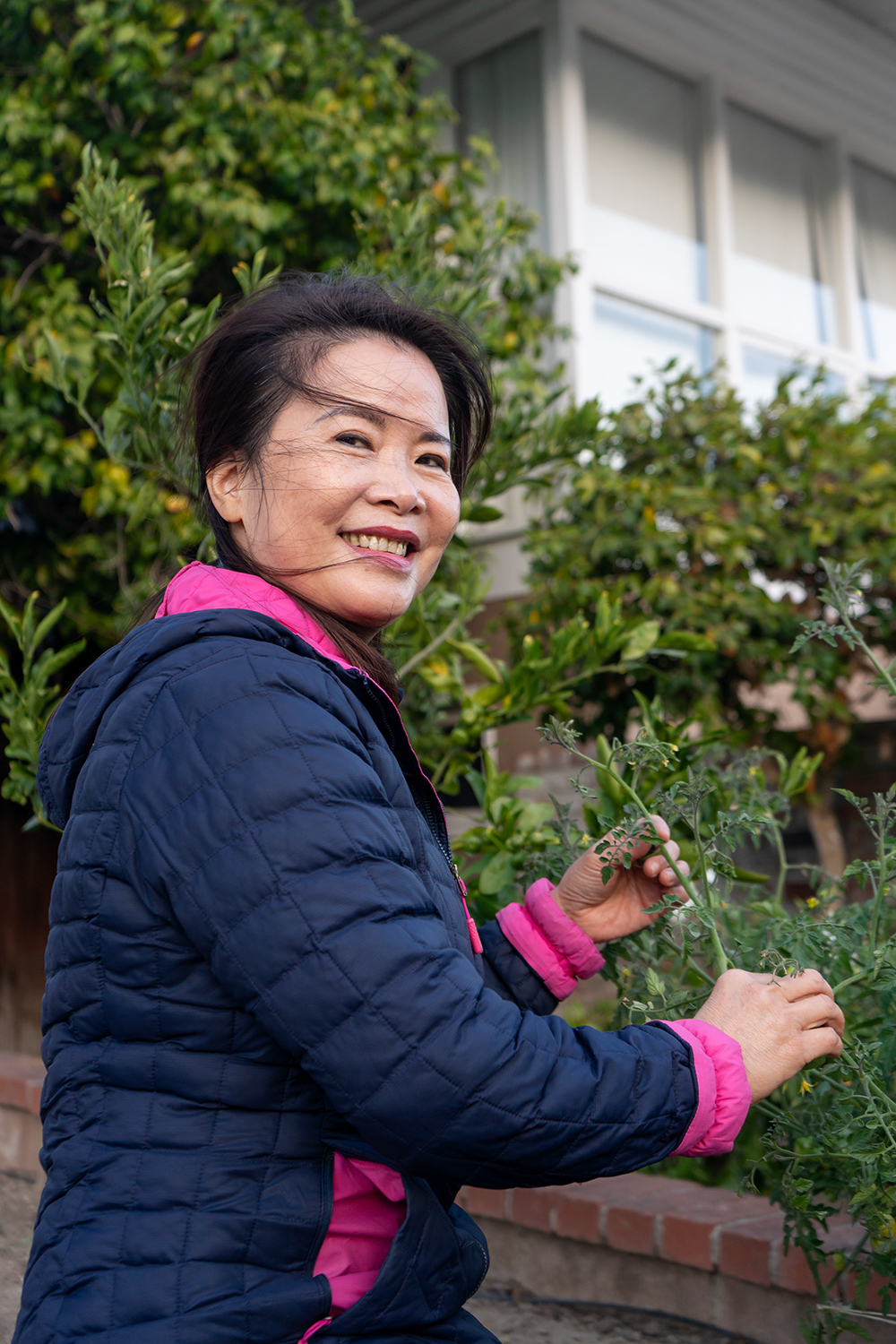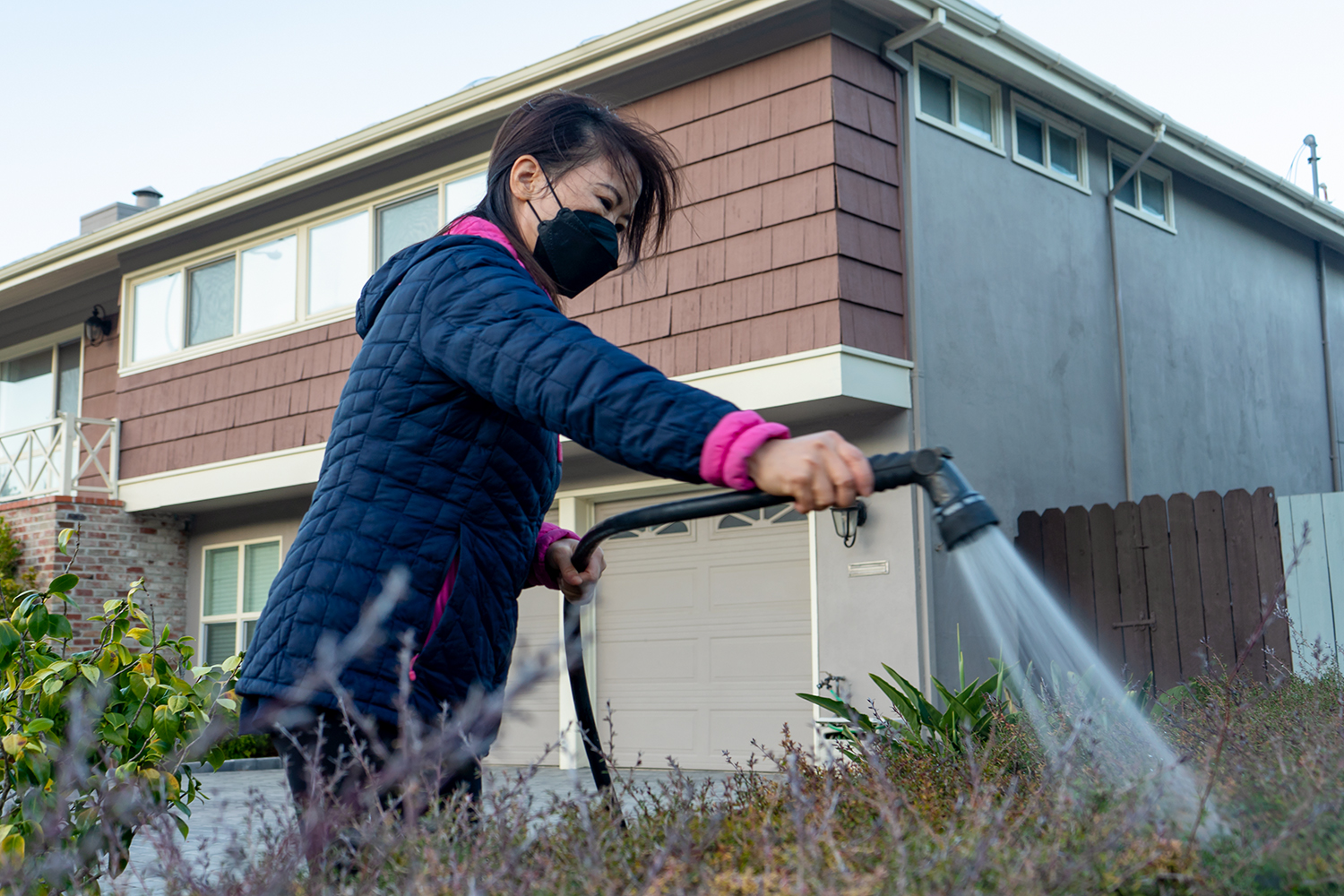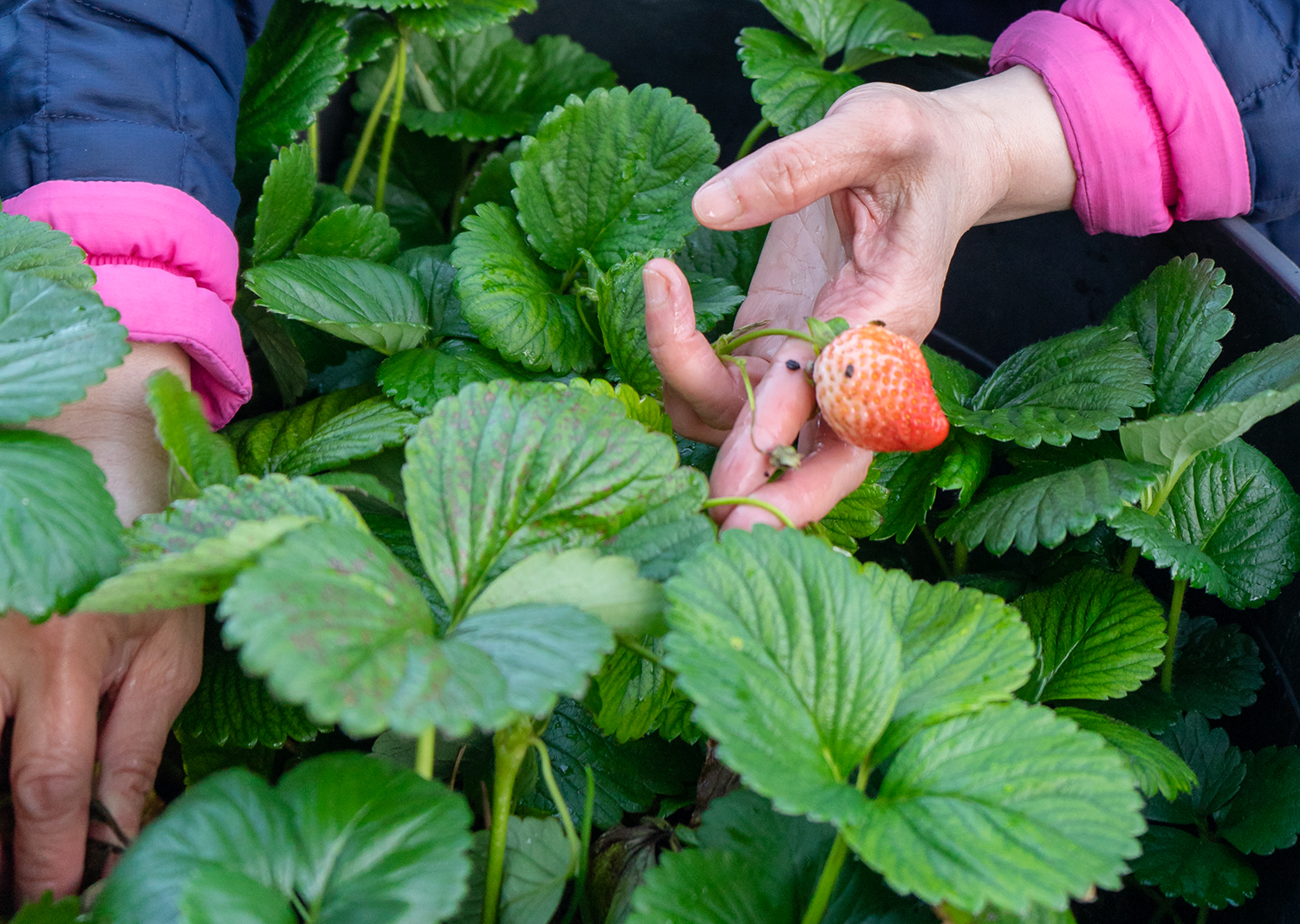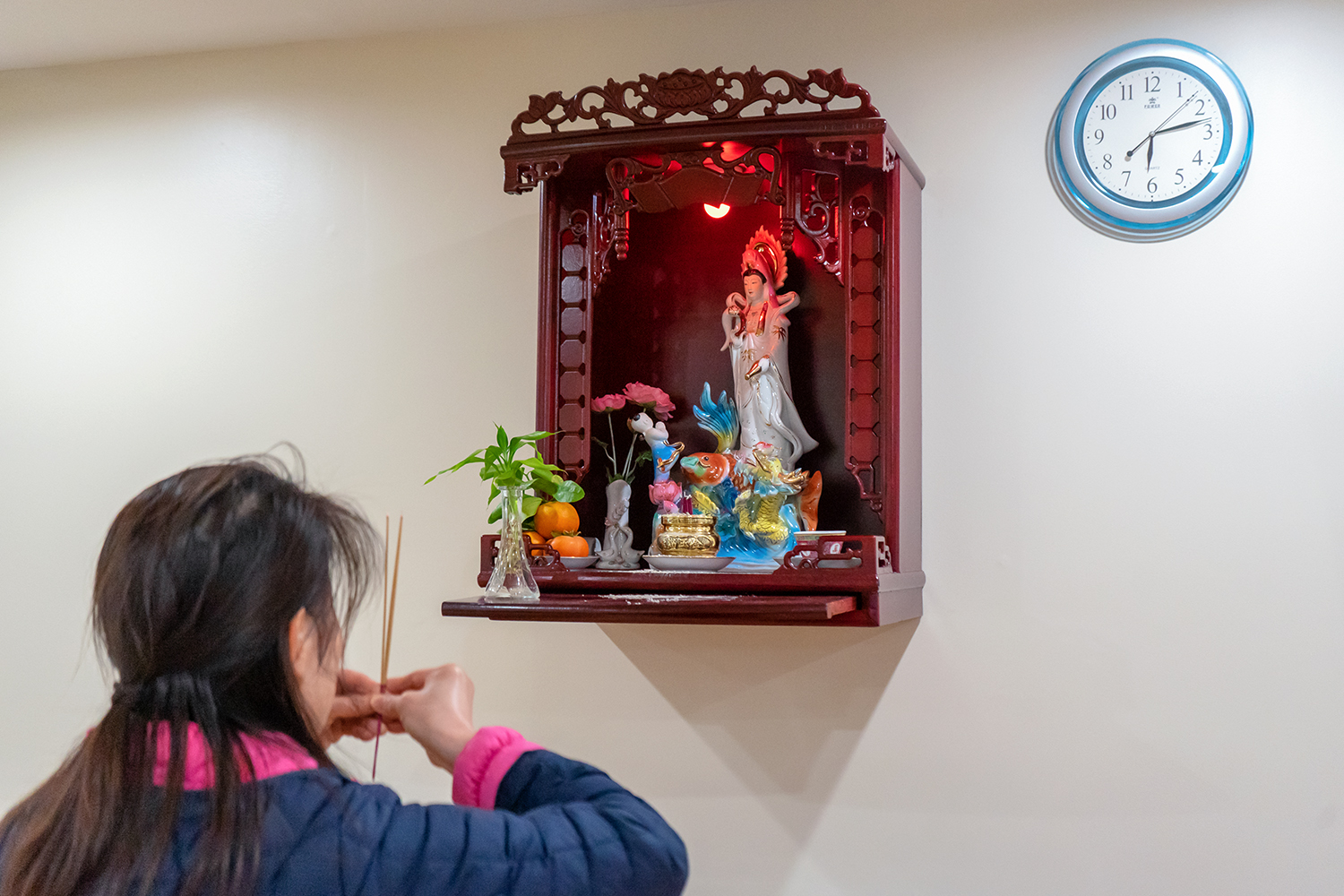
What does it mean to be an American?
We are finding, coaching and training public media’s next generation. This #nprnextgenradio project is created in Sacramento, Calif., where four talented reporters are participating in a week-long state-of-the-art training program.
In this project we are speaking to people from various walks of life—whether they are Indigenous, native born, a naturalized citizen, a refugee or an immigrant without legal status—to ask what it means to be an American.
Illustration by Ard Su
‘Not easily defeated’: Chinese American business owner builds family, community in San Francisco’s Chinatown
Her plants aren’t the only thing she was able to grow in America.
Cheung migrated from Hong Kong to California in 1990. For 31 years, Cheung built and grew a skin care business in San Francisco’s Chinatown — the shop would eventually help her bring her father, mother and three siblings from Hong Kong to California in the late 1990s. Cheung’s efforts helped shape two generations of Chinese Americans in her family, including her two children.
Building Community In Chinatown
Cheung moved to the U.S. because her then-husband’s family had settled in California. She admired the freedoms the United States advertised for its citizens. Despite the language barrier, she found a way to create a business and family in the community of Chinatown.
“I think being an American means that you have the freedom of doing whatever you want,” she said. “There is no pressure from the harsh education system for the little kids. Also, people are more open-minded and there are more opportunities here for being an American.”
Cheung’s in-laws helped her settle in Chinatown where she ultimately studied skin care and eventually opened the Ocean Skin and Health Center — a practice that would continue for 30 years. Cheung eventually moved to Millbrae in 2003 to have more room for her growing family.
But Chinatown remained an integral part of her life.
“I was being stuck in the circle of Chinatown, but I am grateful that Chinatown allows me to speak my native tongue and has catered my business towards Asian population,” Cheung said.
San Francisco’s Chinatown is the largest and oldest in North America. During the mid-1800s, a wave of Chinese immigrants migrated to America after hearing rumors of scattered gold in the mountains of California.

“I really like living in Chinatown and working in Chinatown because of the lifestyle and the type of food that they provide, [it] is very similar to the ones that I’ve had in China,” Cheung said. “I felt very comfortable staying in Chinatown.”
After getting divorced in 2001, Cheung raised her two children on her own and said they were her biggest support system. Her relationship with them helped her better appreciate and value family, a mindset that she brought to her work. Cheung said she liked talking to her clients as if they were long-time friends or family members to make them feel more welcome. Her conversations usually consisted of food, family life and their children’s education.
“I like doing facials because during the process of facial treatments, I can chat with the customer and get closer with them, like treating them as family members,” she said. “And throughout the process, I have made lots of friends and close connections with a lot of people.”


At the same time, reports of racist attacks against Asian Americans grew during the pandemic. Asian Americans, especially Chinese Americans, became the scapegoats and were targets of racist, Sinophobic and xenophobic incidents.
According to national report data from Stop AAPI Hate, there have been 9,081 reports of hate incidents involving Asian Americans from March 19, 2020 to June 30, 2021. Of those incidents, almost 14% were physical assaults, many involving elderly Asian Americans.
- Chinese 43.5%
- Korean 16.8%
- Filipinx 9.1%
- Japanese 8.6%
- Vietnamese 8.2%
- White 6.6%
- Taiwanese 6.1%
- Asian 3.9%
- Other 2.7%
- Indian 2.2%
- Hmong 2.1%
- Thai 1.9%
- Latinx 1.8%
- Cambodian 1.6%
- African American 1.3%
- Lao 1.0%
- Indian or Alaska Native 0.6%
- Multiracial 0.4%
- Pacific Islander 0.2%
Note: Individuals who reported to Stop AAPI Hate could select multiple racial and ethnic categories. The numbers shown indicate the exact categories individuals used to self-identify. Some respondents selected the category “Asian” instead of selecting a specific Asian ethnicity. Some people chose the “Multiracial” category, while other selected two more categories to convey their multiracial heritage (e.g. “Chinese” and “White”). The presence of non-AAPI race/ethnicity is due to reports from multiracial AAPI persons as well as non-AAPI persons reporting on behalf of others or after witnessing an incident.
Cheung attended three rallies all around the Bay Area that support the protection of Asian American lives. Cheung said she felt it was important for more Chinese Americans to stand up and speak out against racial injustices.
“I believe that more Chinese Americans need to stand up and be united and participate in protest to let others know that we are not,” she said. “We are not easily defeated. And we need to fight against racism, through uniting together and not show weakness. And eventually that people’s stereotype against Chinese Americans will go away.”

